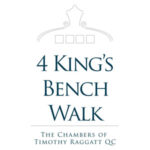Clare Arthurs and Sebastian Kokelaar examine the role of commercial common sense in the interpretation of contracts after Arnold v Britton ‘Arnold does not represent a radical departure from what was said in Rainy Sky about commercial common sense. Both decisions underline the primacy of the words used by the parties.’ In the case of …
Continue reading "Contract: No Rainy Sky over the Gower Peninsula"
This post is only available to members.
A recent Supreme Court ruling took a very literal approach to the interpretation of service charge provisions. Robin Biela assesses the judgment and its implications ‘There is considerable benefit for both landlord and tenant in having a fixed service charge that increases by reference to clear, objective criteria and requires no outside information.’ In Arnold …
Continue reading "Interpretation Of Contracts: When words speak louder than actions"
This post is only available to members.
Jenny Salmon reports on MT Højgaard A/S v E.ON and the lessons to be learned ‘Any warranty as to the length of operational life should have been expressly set out in the contract… and not buried in the technical requirements.’Contracts are the foundation-stone for the legal rights and responsibilities of the parties to any construction …
Continue reading "Contract: Failing foundations – the legal approach to contractual ambiguity"
This post is only available to members.
Chris Bryden, Agata Patyna and Matthew Shaw evaluate a recent Supreme Court decision dealing with the interpretation of contracts ‘The High Court agreed with the buyers’ interpretation, but the Court of Appeal overturned it and entered summary judgment in favour of the respondent bank.’ When dismissing the appeal of the lessees in the Court of …
Continue reading "Update: Caravan parks and rainy days"
This post is only available to members.
What is and what is not a consent under s3 of the Prescription Act 1832 can be a tricky question to answer, as Andrew Francis finds out ‘Quite apart from whether the provision is a consent within s3, another commonly encountered issue is whether the provision can bind, or benefit, successors in title.’ Section 3 …
Continue reading "Rights To Light: A trick of the light"
This post is only available to members.
Wills & Trusts Law Reports | October 2014 #143Lucian Freud (the deceased) achieved international recognition as an outstanding painter and draughtsman, and he acquired considerable wealth over the course of his long and successful life. His final will was dated 10 May 2006 (the 2006 will), superseding his previous will of 25 June 2004 (the 2004 will). Both wills were professionally drafted. His residuary estate, after payment of legacies and inheritance tax, was estimated at around £42m.
The claim was brought by the claimants under CPR Part 8 in their capacity as executrices of the deceased’s final will. The first cl...
Euan McSherry reviews a Scottish case where a business common sense construction triumphed in the interpretation of a terminal dilapidations claim ‘One can envisage that tenants will seek to rely on this judgment to argue that in dilapidations disputes, landlords will need to demonstrate that they have in fact suffered, or are genuinely going to …
Continue reading "Dilapidations: Common sense prevails"
This post is only available to members.
Wills & Trusts Law Reports | June 2014 #140In 2009 Steven Huntley (the deceased) sought the advice of a solicitor in relation to wills and inheritance tax planning. At the date of his death, 11 March 2011, the deceased’s estate was valued at £6.9m, which was comprised of a 90% shareholding in an unquoted company (£5.4m), real estate, vintage cars and cash. The deceased’s estate was substantially similar in 2009.
The deceased had wanted to leave his estate equally between his partner, Louise, and his five children. He had expressed concerns to his solicitor about leaving substantial assets to his children outright and his s...
Wills & Trusts Law Reports | March 2014 #137Mr Alfred Rawlings and his wife Maureen Rawlings instructed a solicitor to draft their wills in mirror form. Each spouse intended to leave his or her entire estate to the survivor of them, but provided that, should the other have predeceased or survived them for less than a month, their estates should be left to the appellant, who was not related to them but whom they treated as their son. Mr and Mrs Rawlings’ solicitor attended them on 17 May 1999 to enable a due execution of draft wills containing these provisions. By an oversight, their solicitor gave each spouse the other’s draft wil...
Clare Arthurs and Sebastian Kokelaar assess the implications of a recent decision in the Supreme Court The bank’s interpretation was, arguably, commercially implausible, whereas on the claimants’ interpretation the whole of para 2 could be said to be redundant.In Rainy Sky SA v Kookmin Bank [2011] the Supreme Court revisited the principles governing the construction …
Continue reading "Contract: I can see clearly now… interpreting contracts post-Rainy Sky"
This post is only available to members.







